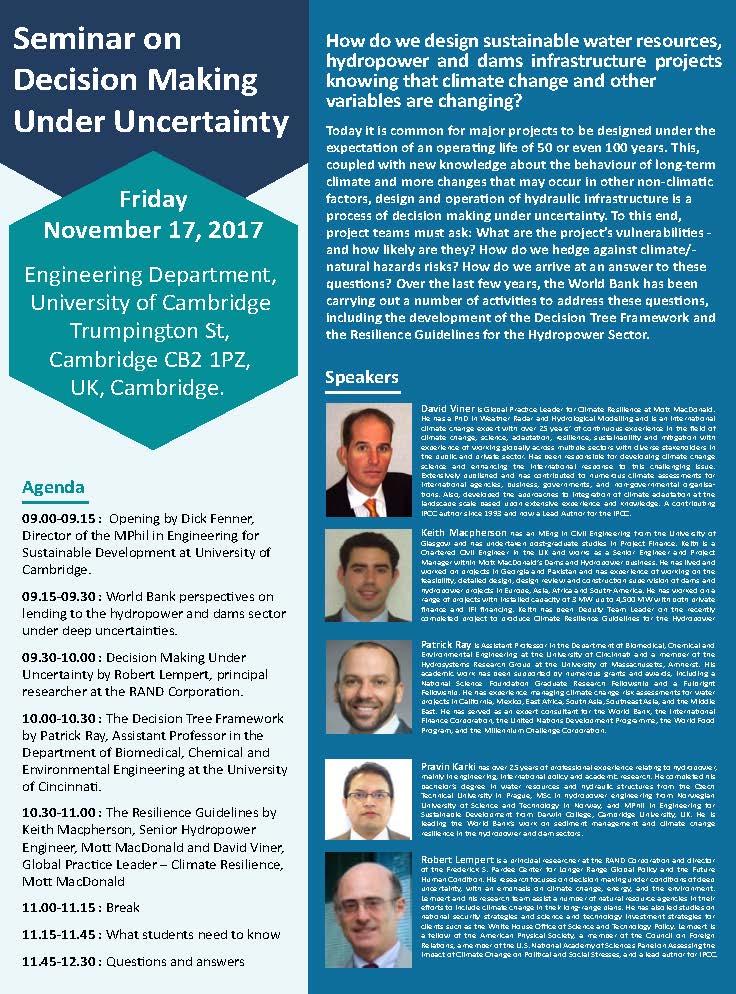
Submitted by Miss Sian Owen on Wed, 22/11/2017 - 11:18
How do we design sustainable water resources, hydropower and dams infrastructure projects knowing that climate change and other
variables are changing?
Former MPhil student Pravin Karki (2006-07) has been recently promoted to Global Lead for Hydropower & Dams at the World Bank. Pravin recently returned to Cambridge to lead a seminar for the current MPhil students on Decision making under Uncertainty, with respect to hydropower.
Other contributions to these sessions were David Viner Global Practice Leader for Climate Resilience at Mott MacDonald, Keith Mcpherson Senior Engineer and Project Manager within Mott MacDonald’s Dams and Hydropower business, Professor Patrick Ray Department of Biomedical, Chemical and Environmental Engineering at the University of Cincinnati and a member of the Hydrosystems Research Group at the University of Massachusetts, Amherst and Robert Lempert principal researcher at the RAND Corporation and director of the Frederick S. Pardee Center for Longer Range Global Policy and the Future Human Condition.
Today it is common for major projects to be designed under the expectation of an operating life of 50 or even 100 years. This, coupled with new knowledge about the behaviour of long-term climate and more changes that may occur in other non-climatic factors, design and operation of hydraulic infrastructure is a process of decision making under uncertainty. To this end, project teams must ask: What are the project’s vulnerabilities - and how likely are they? How do we hedge against climate/- natural hazards risks? How do we arrive at an answer to these questions? Over the last few years, the World Bank has been carrying out a number of activities to address these questions, including the development of the Decision Tree Framework and the Resilience Guidelines for the Hydropower Sector.
